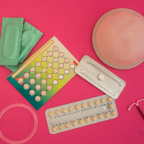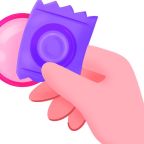Pubic Lice
Pubic lice are tiny insects which can live on your pubic hair. They’re not always spread through sex, but they can be. You can also get them from sharing clothes, bedding or towels with someone who has them.
Pubic lice don’t cause any serious health problems, but they can be itchy and uncomfortable.
Here we will discuss the signs and symptoms of pubic lice and how you can get treated.
Pubic Lice
Pubic lice are tiny insects which can live on your pubic hair. They’re not always spread through sex, but they can be. You can also get them from sharing clothes, bedding or towels with someone who has them.
Pubic lice don’t cause any serious health problems, but they can be itchy and uncomfortable.
Here we will discuss the signs and symptoms of pubic lice and how you can get treated.
Signs and Symptoms
Pubic lice may take a few weeks to appear, so you may not notice them straight away.
Once they appear, they are tiny and can be very difficult to see but signs you may have them include:
- Itching around the affected areas
- Black powder in your underwear (this is the droppings from the lice)
- Brown eggs on pubic or other body hair
- Irritation and inflammation in the affected area
- Sky-blue spots or very tiny specks of blood on the skin (caused by lice bites)
How is it Transmitted?
If you’ve got pubic lice, it isn’t a sign of poor hygiene. They can be passed on without actually having sex – just by being in close contact with someone.
But they’re most commonly passed on through vaginal, anal or oral sex. It’s also possible for them to be passed on through sharing a towel or bed sheets – but this is less likely.
How to Get Tested
The free, easy and discreet way to discover if you have an STI.
Call our Helpline
Speak to a friendly advisor and get the advice and support you need.
You’re not alone.
There are people who care about you and want to help you through this.
Prevention
It’s still possible to pass on pubic lice even when you’re using a condom.
This means the best way to prevent the spread of pubic lice is to not have sex when you’ve got symptoms.
Treatment
Treatment for pubic lice is usually very easy and will go away with a prescription lotion, cream or shampoo which you can get from your doctor or a pharmacy.
If left untreated, the lice may spread to other areas of the body causing further skin irritation and potentially infection.
FAQs
Pubic Lice
Clear answers to common questions
Contacting a sexual health service for the first time may be a little daunting, especially if you’re not keen on talking to someone. So, here are answers to some of the questions we get asked a lot.
Is there a cure for pubic lice?
Yes, you will be prescribed a special lotion or cream which will kill the lice.
Are pubic lice serious?
Pubic lice can be easily treated and usually don’t have a serious effect on your health – although they may cause infection if left untreated for too long.
What do I do if I think I have pubic lice?
If you think you may have an STI you should visit your GP or local sexual health clinic, or call our helpline on 0300 003 1212 – a trained professional will give you advice, support and provide treatment.










